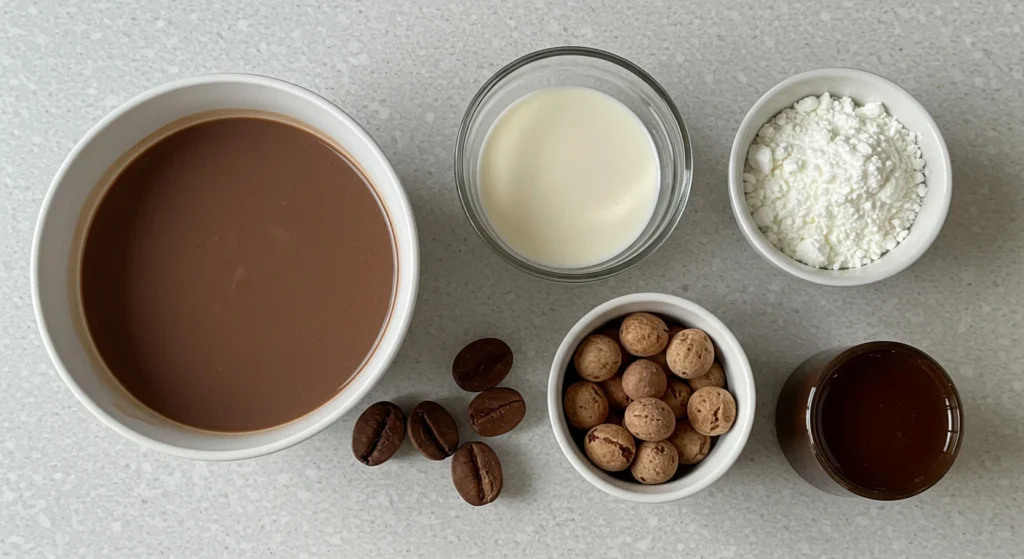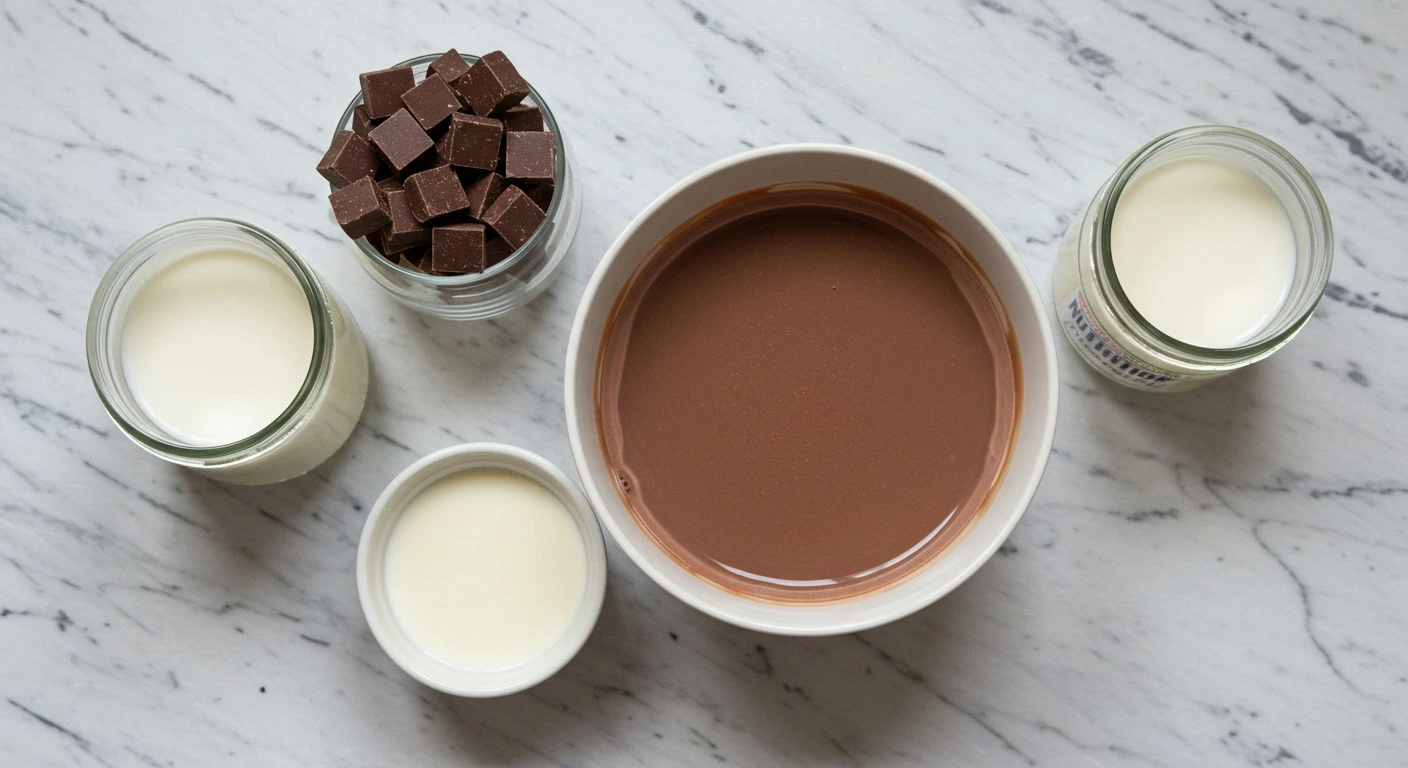chocolate milk nutrition facts are often debated, with many wondering about its place in a balanced diet. This delicious drink, loved by kids and adults alike, is more than just a sweet treat. It presents a complex combination of nutrients that deserve careful consideration.
Understanding Chocolate Milk Nutrition Facts
The Basics of Milk
Milk, the foundation of chocolate milk, provides essential nutrients. These include calcium, important for bone health. Additionally, it contains vitamin D, which aids in calcium absorption. Milk also offers protein, crucial for muscle building and repair. The specific fat content depends on whether you choose whole, reduced-fat, or skim milk.
Adding Chocolate
The addition of chocolate, usually in the form of cocoa powder and sugar, alters the nutritional profile. It introduces carbohydrates and, often, more sugar. This increase in carbohydrates provides energy. However, the added sugar can be a concern for some individuals. Therefore, understanding the impact of these additions is key.
Key Macronutrients
Chocolate milk contains a blend of macronutrients. These include carbohydrates, proteins, and fats. The carbohydrate content primarily comes from sugars. Protein is derived from the milk. Fat levels vary depending on the type of milk used. These macronutrients each play a role in the body’s energy system. They also influence overall health.
Micronutrients in Focus
Besides macronutrients, chocolate milk offers micronutrients. As mentioned, it has calcium and vitamin D. It also contains potassium, which supports healthy blood pressure. Vitamin B12 is another important nutrient found in milk. These micronutrients are essential for various bodily functions. They contribute to overall well-being.
The Amazing Benefits of Chocolate Milk
Chocolate milk can be a source of several benefits. It’s a convenient way to get protein and calcium. It also helps with rehydration after exercise, thanks to its electrolyte content. Furthermore, it provides a source of energy due to its carbohydrate content. These elements contribute to its appeal as a recovery drink.
Post-Workout Recovery
The combination of carbohydrates and protein makes chocolate milk a good choice for post-workout recovery. The carbohydrates replenish glycogen stores. This is important for restoring energy after physical activity. Protein helps repair and build muscle tissue. Electrolytes, also present, aid in rehydration. This combination makes it a useful recovery beverage.
Bone Health Support
Calcium and vitamin D are vital for bone health. They help maintain bone density. This is particularly important during growth phases. Additionally, it supports long-term skeletal health. The calcium in chocolate milk, therefore, makes it a beneficial drink for bone strength.
A Source of Energy
The sugars in chocolate milk provide a quick source of energy. This can be beneficial before or after physical activity. However, moderation is key. Consuming too much added sugar can have negative health consequences. It’s essential to balance energy intake with overall nutritional needs.
Taste and Enjoyment
Taste and enjoyment play a role in dietary choices. Chocolate milk offers a flavorful way to consume milk. This can be helpful for people who do not like plain milk. Enjoying what you eat can positively influence dietary habits. It may help make healthy choices more sustainable.
Potential Drawbacks of Chocolate Milk
Despite the benefits, there are potential drawbacks to consider. The added sugar content is a significant concern. Excess sugar consumption can contribute to weight gain, dental issues, and other health problems. Therefore, moderation and mindful consumption are crucial. It is wise to be aware of these aspects.
High Sugar Content
The added sugar in most commercial chocolate milk products is the main concern. High sugar intake can lead to weight gain. It can also contribute to increased risks of conditions such as type 2 diabetes. This is particularly problematic when consumed frequently. Limiting added sugar is often a key dietary goal.
Caloric Density
Chocolate milk is calorie-dense. This means that it contains a considerable number of calories per serving. Overconsumption can contribute to weight gain. It’s important to be mindful of portion sizes. Keeping track of calorie intake is a good way to ensure a balanced diet.
Fat Content Considerations
Depending on the type of milk used, chocolate milk can have varying levels of fat. While some fats are essential, excessive consumption, particularly of saturated fat, can be harmful. It’s important to consider your individual dietary needs. This includes fat intake. Consider these aspects for overall health.
Alternatives and Substitutes
There are alternatives to consider if you want a lower-sugar option. Unsweetened cocoa powder can be added to milk with a sugar substitute. This can reduce the added sugar significantly. There are also lower-sugar commercial brands available. It is good to read labels and be aware of ingredients.
7 Essential Chocolate Milk Nutrition Facts
Understanding the components of this popular beverage is important. It can help you make informed dietary decisions. Here are seven key facts about chocolate milk. These will further illustrate its nutritional profile.
1. Variable Sugar Content
The sugar content in chocolate milk can vary significantly between brands. Some products contain a lot of added sugar. This increases the caloric intake. Other brands focus on using less sugar. Reading labels carefully is important. It’s good to check sugar levels before making a purchase.
2. Source of Protein
Milk-based products, including chocolate milk, are good protein sources. Protein is vital for muscle building and repair. It helps with satiety too. This can aid in managing weight. Therefore, it’s important to consider the protein content as part of the overall picture.
3. Calcium for Bones
The calcium found in milk is beneficial for bone health. It’s particularly important for kids and adolescents. This is a key nutrient in the maintenance of strong bones and teeth. Calcium deficiency can lead to health problems. Getting enough calcium is essential.
4. Vitamin D Benefits
Vitamin D is also crucial. It enhances calcium absorption. It supports overall bone health too. Vitamin D also plays a role in immune function. Chocolate milk is a source of this key nutrient. However, the amount may vary in different products.
5. Electrolytes for Rehydration
Chocolate milk contains electrolytes. These help with hydration after exercise. Electrolytes, like sodium and potassium, are lost through sweat. They need to be replaced. Therefore, chocolate milk can be a useful recovery drink. It rehydrates and replenishes these electrolytes.
6. Calorie Density Issues
Be aware of the calorie density. A single serving can contain a substantial number of calories. This is particularly true of whole-milk versions. Being mindful of portion sizes and overall caloric intake is crucial. Weight gain could result from overconsumption.
7. Added Flavor Impact
While the added flavor improves taste, it also impacts nutritional profile. The added sugar contributes to empty calories. It also may introduce other artificial flavors. These elements make it essential to consider the overall impact of consuming chocolate milk.
Making Informed Choices:chocolate milk nutrition facts
When considering chocolate milk, it is important to be an informed consumer. Pay attention to ingredients. Check sugar levels. Think about portion sizes. Doing so allows you to make balanced choices. It also helps you make chocolate milk part of a healthy lifestyle.
Moderation is Key
Like many foods, moderation is essential when consuming chocolate milk. Enjoying it occasionally as part of a balanced diet is different from frequent overconsumption. Too much of any food, especially sugary drinks, can be harmful. A balanced approach is best for overall health.
Reading Nutrition Labels
Reading nutrition labels is a crucial habit. It helps you make informed choices. Pay close attention to sugar content, fat levels, and overall calorie count. Also, consider protein, vitamin, and mineral content. It is beneficial to check these labels regularly.
Pairing with a Balanced Diet
Chocolate milk can be a part of a balanced diet. Pair it with nutrient-rich foods. Include plenty of fruits, vegetables, and whole grains. This ensures you’re getting a wide range of essential nutrients. This contributes to overall health and wellness.
Considering Individual Needs
Nutritional needs vary depending on factors such as age, activity level, and health conditions. Consult a healthcare professional or dietitian for tailored advice. They can help you make the best dietary choices. This can help you achieve your personal health goals.
Image Placeholder: alt text “Chocolate Milk Nutrition Facts” – showing a glass of chocolate milk with nutritional labels in the background.
Image Placeholder: alt text “Post Workout Recovery Drink” – Showing an athlete drinking chocolate milk after a workout.
Image Placeholder: alt text “Calcium Rich Foods” – Highlighting chocolate milk and other calcium sources.
Image Placeholder: alt text “Sugar Content Comparison” – Comparing sugar levels in different beverages.

FAQ : chocolate milk nutrition facts
How healthy is chocolate milk for you?
Chocolate milk can be part of a healthy diet when consumed in moderation. It offers valuable nutrients like calcium, vitamin D, and protein. However, it also contains added sugar and calories. These should be considered. Therefore, mindful consumption is important.
Is chocolate milk healthier than soda?
Generally, chocolate milk is a healthier choice than soda. It provides beneficial nutrients, whereas soda offers empty calories. The protein and calcium in chocolate milk are advantageous. However, the sugar content should still be considered. Moderate consumption is still recommended.
Is milk chocolate still good for you?
Milk chocolate in its solid form is different from chocolate milk. It has less milk, more cocoa butter and sugar. It’s also less nutrient-dense. It’s a treat and should be consumed sparingly. Its nutritional value is significantly lower than chocolate milk itself.
Is chocolate milk good before bed?
Chocolate milk might not be ideal before bed due to its sugar content. The sugar can interfere with sleep quality. It can provide a late energy boost. While the milk may be soothing, the added sugar should be considered. Choose low-sugar alternatives or plain milk before bed.

